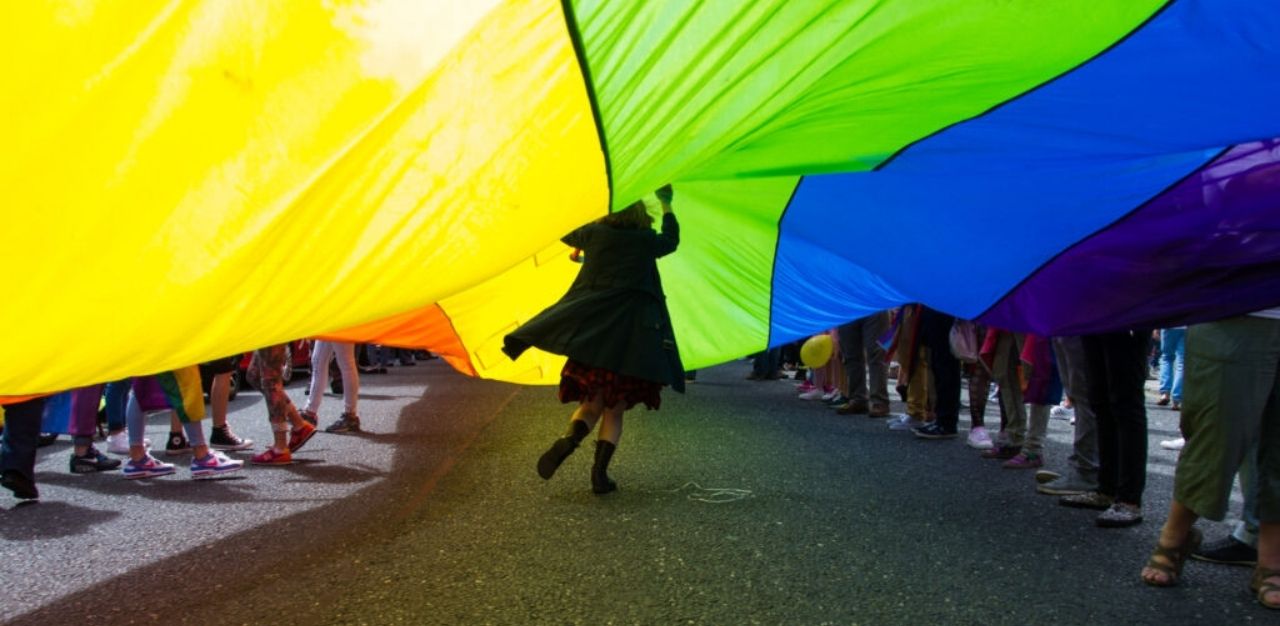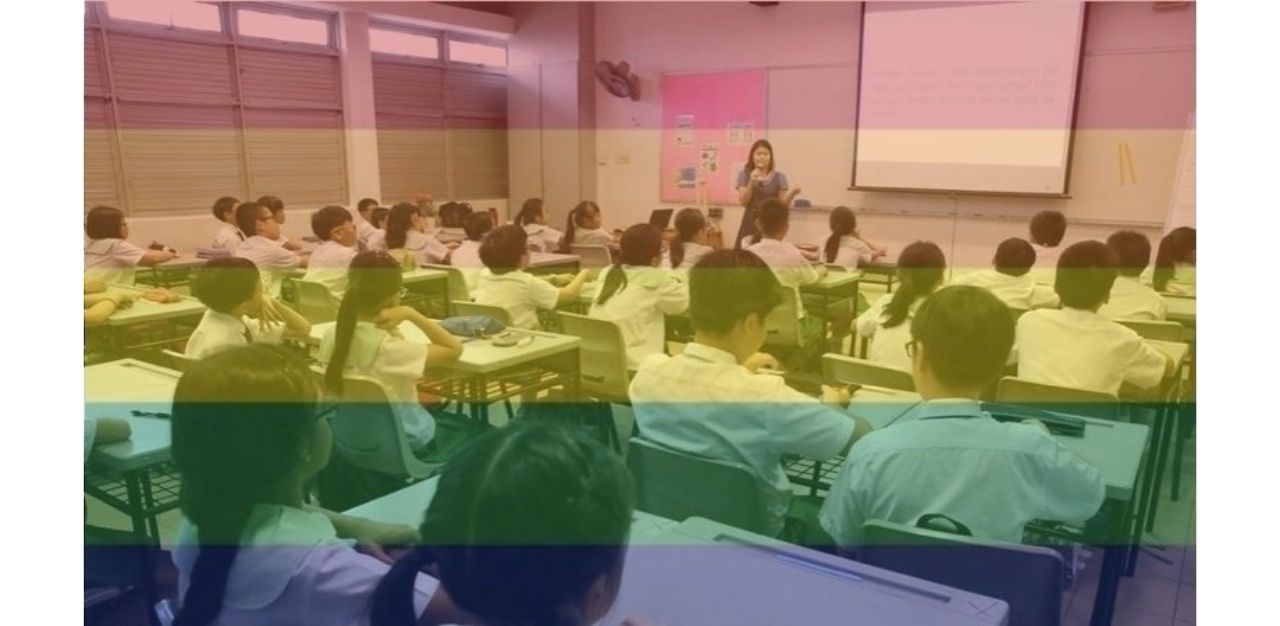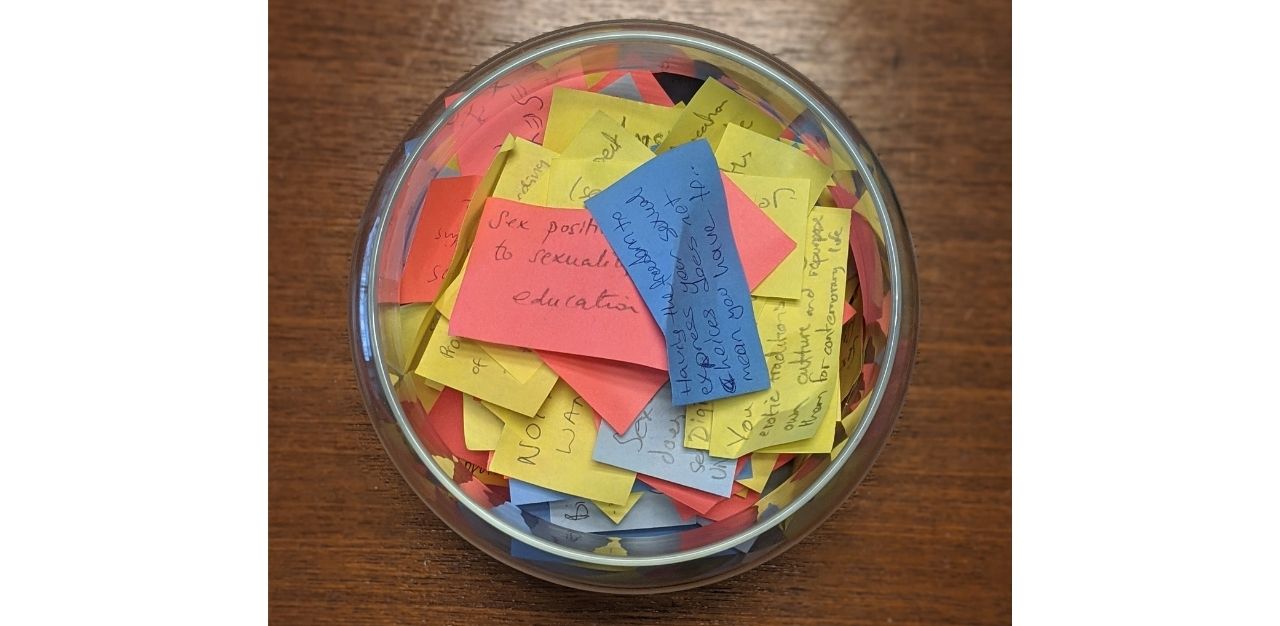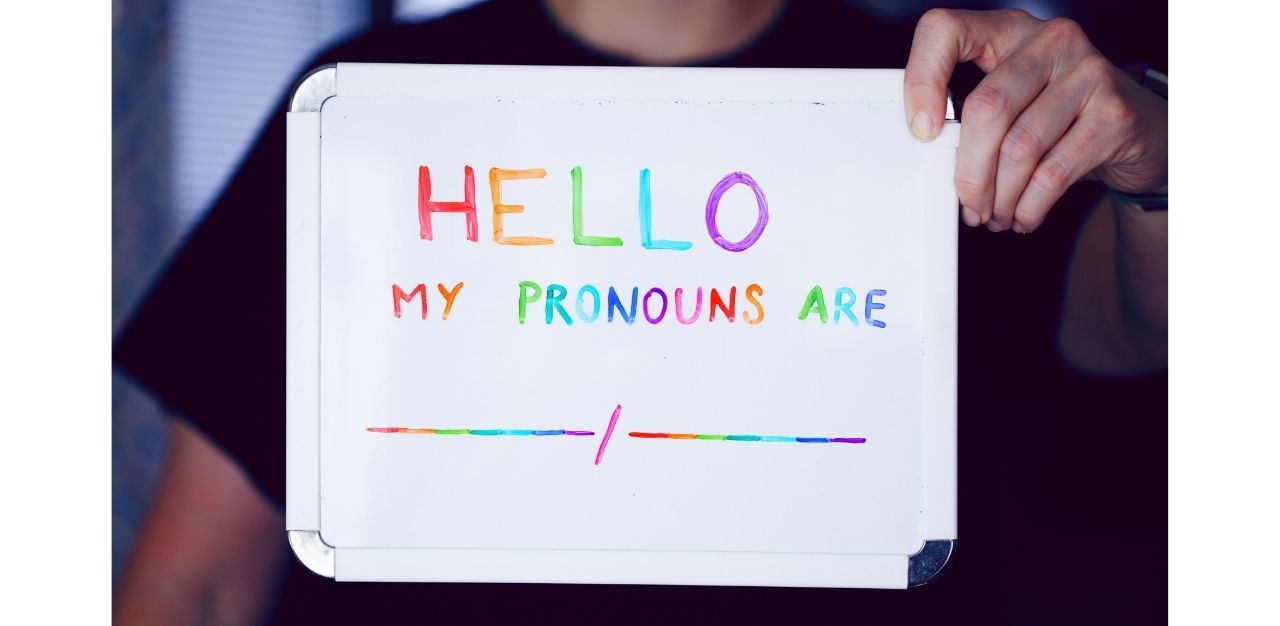In an earlier article, we explored the different ways in which schools in Singapore perpetuate harm towards LGBTQ+ youths through a lack of clear ministry-level policies to support them, and the failure to stop discrimination from multiple parties, including teachers, school leaders and students who have been socialised to reject students who are different.
How then can schools begin to protect the safety of queer students to level the playing field and ensure that every student has equal opportunities for success—regardless of their gender and sexuality?
There is a need to foster a space of inclusivity and safety that can begin with the simplest of measures: acknowledge the existence of LGBTQ+ people. For instance, the teaching staff needs to adopt habits such as introducing themselves with their pronouns and encouraging students to do the same while using gender-inclusive language such as “they and them”.
Discourse surrounding gender and sexuality to initiate speaking about gender beyond the binary, normalising apologies for misgendering to acknowledge such mistakes as more important than perpetuating continued harm to a trans student are a few ways gender non-conforming student Elijah Tay recommends as a starting point.
Topics such as allyship, looking beyond the term multiculturalism and learning of minority issues that students face such as racism, disability and being queer can be brought up during Character and Citizenship Education (CCE) to start getting students interested in issues beyond their own lives.
A non-binary student, who would like to be referred to as N, echoes these sentiments and believes open discussions should be held to create a safe space for queer students to express their concerns.
“When the LGBTQ+ community is excluded from sex education in schools, queer kids are not only denied a safe environment, but they are also more unlikely to care for themselves. Inclusivity can also provide safe chest-binding information for students who wish to do so, not enforcing the gender binary onto students by policing their hair or uniform choices that reflect their identity, taking bullying within the LGBTQ+ community seriously, and not outing students,” they say.

Adopting consistent policies that support queer youths
Youth worker Alex Teh from non-profit organisation Oogachaga suggests setting blanket rules on bullying. “Sexuality orientation, gender identity, and/or gender expression (SOGIE)-targeted bullying is still bullying, and it should be clear that it will have the same consequences as other types of bullying. Prevention is better than cure, but if it were to happen anyway, LGBTQ+ students will feel safer with the knowledge that these incidents will not be dismissed,” he says.
In addition, students’ right to privacy with what they share in confidence should be kept private, unless requested otherwise. “Just because students are young, doesn’t mean they are not capable of deciding what information needs to be kept private, especially when divulging this information may expose them to harm. Students will feel safer knowing their autonomy is respected,” Mr Teh adds.
The Ministry of Education (MOE) can begin by initiating conversations with the LGBTQ+ community stakeholders to better understand the issues faced by such students. Inclusive policies should be formulated to care for, protect and support queer students, and these policies should be made known to all, suggests Executive Director of Oogachaga Leow Yangfa.
Moving towards an inclusive sex-ed curriculum
“A comprehensive sexuality education programme should cover consent, respect, healthy sexual relationships, contraception, as well as gender myths and stereotypes so as to actively debunk them. For older kids, it could involve some role-play activities that allow students to engage with different scenarios based on real-life sexual situations, which are often harder to navigate than what is presented in a textbook,” says Ms Tan Joo Hymn, project director for Birds & Bees, AWARE’s sexuality education workshop.

Revising MOE’s sexuality education curriculum to bring it in line with the United Nations Educational, Scientific and Cultural Organisation (UNESCO)’s International Technical Guidance on Sexuality Education will enable children to develop respectful social and sexual relationships; consider how their choices affect their own well-being and that of others; and understand and ensure the protection of their rights throughout their lives, she adds.
AWARE’s Birds & Bees workshop touches on the topic of sexual orientation as part of the content. “Parents learn about and discuss the likely percentages of LGBTQ+ people in society, the difficulties faced by LGBTQ+ youths seeking to come out to their parents, and the mental health impacts of bullying and discrimination faced by LGBTQ+ youth,” says Ms Tan.
“In recent years, MOE has added to its curriculum concepts such as gender equality, sexual exploitation and abuse, and the importance of respect and empathy for the LGBT+ community. However, based on the accounts of students AWARE has spoken to, and others shared on social media of bullying and discrimination against LGBTQ+ students in schools, those values of respect and empathy may not be taught early or effectively enough. After all, children imbibe societal norms about gender identity/expression and sexual orientation from a very young age,” says Ms Tan.
A teacher, who spoke with the promise of anonymity, suggests restructuring sexual education classes to empower students to make their own informed decisions, rather than telling them what not to do. A good sex-ed should ask students these questions: “What should I do when I feel these urges or when I feel a sense of danger? What are the things I personally need to take care of and look out for myself?”
Education and support goes beyond school
Currently, MOE schools are not allowed to refer students to LGBTQ+ organisations. To better support queer students who might be struggling, schools should be allowed to refer them to queer-affirming services such as Oogachaga, Brave Spaces, The T Project, and TransBefrienders.
In a joint survey by independent research agency Blackbox and AWARE, almost all parents agreed they have a role to play in their child’s sex education. This reinforces the need for workshops such as Birds and Bees to better equip them with the tools, know-how and confidence to encourage such conversations.

Parents also need to change their expectations of what teachers do, suggests a teacher. “In some cases, parents know so surely what they want for their children that they haven’t really considered what their children want for themselves. I know they’re coming from a good place but their method [of upbringing] isn’t always the most effective,” they say.
In fact, policymakers, school leaders and staff, and parents should come together to ask, “What is the purpose of education? Why do we offer students counselling and sex-ed? Is it to support students and protect them? Or are we trying to enforce ideas of what we think life should look like.”
This is the second of a two-part series on the LGBTQ+ youth in Singapore and providing them with a safe learning environment they need.
Join the conversations on TheHomeGround Asia’s Facebook and Instagram, and get the latest updates via Telegram.




























